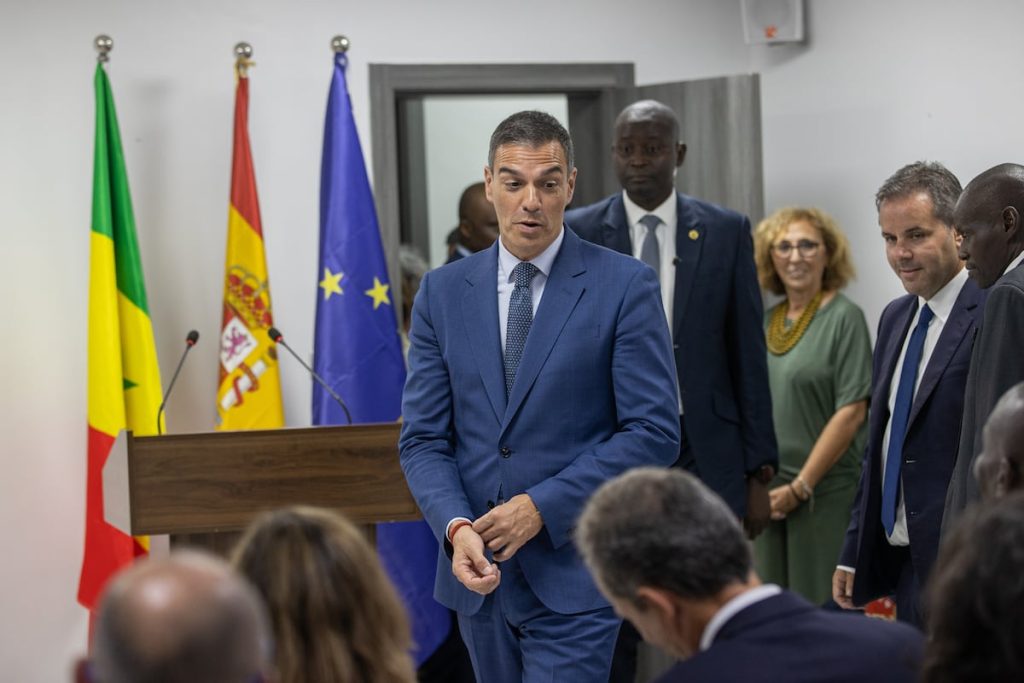During his African tour, Spanish Prime Minister Pedro Sánchez addressed the issue of immigration for the first time and emphasized the need for countries of origin to accept the repatriation of irregular migrants who arrive in Spain. He highlighted the connection between human trafficking organizations, terrorist networks, and drug trafficking, stating that it is essential to combat these threats by repatriating those who have arrived irregularly. Sánchez also emphasized the importance of sending a clear message to criminal networks and those who fall into their hands through successful repatriation.
Despite promoting a positive view of migration, Sánchez acknowledged the priority of security during his speech in Dakar, Senegal. This comes in the context of German Chancellor Olaf Sholz announcing accelerated deportations of irregular migrants after a jihadist attack and criticism from the leader of the opposition party in Spain for not addressing the issue earlier. The topic of repatriation was expected to be a delicate matter in discussions with African interlocutors during the tour, including Senegalese officials with whom Sánchez presented the Spanish-Senegalese initiative “Alianza Avanza África”.
The Spanish government aims to promote investment projects in West Africa to create job opportunities for young people and deter them from migrating to Europe. The initiative, supported by financial institutions, includes projects such as expanding internet access in rural areas of Senegal and providing vocational training to young Senegalese in collaboration with Spanish companies. These efforts are part of the broader plan to strengthen relations between Spain and Africa, particularly prioritizing the Sahel and West Africa regions.
While Sánchez has advocated for circular migration agreements that allow young people to return to their countries after gaining experience, the focus of the tour has been on security matters. During his visit to Banjul, Gambia, the Prime Minister thanked Spanish police and civil guards for their efforts against human trafficking from African coasts. Spain coordinates the Joint Operational Partnership operation in Gambia, involving European and local authorities in combating illegal migration. The deployment of Spanish agents in Gambia, Mauritania, and Senegal has been crucial in preventing the departure of migrant boats.
Despite the small contingent in Gambia compared to other African countries, Spanish efforts have played a significant role in curbing irregular migration from the region. Vulnerable to organized crime networks, Gambia has experienced an increase in migrant boat departures in recent months. The Spanish Interior Ministry reports that the presence of Spanish agents in African countries helped prevent the departure of nearly half of the migrant boats in 2023. However, the challenges of conflict, climate change, and economic prospects continue to drive African migrants to embark on risky journeys to Europe.
In Banjul, Sánchez signed agreements with Gambian authorities to facilitate seasonal worker arrivals in Spain and enhance police cooperation. He highlighted Gambia as a key partner in combating irregular migration and stressed the importance of collaboration among countries of origin, transit, and destination to address this transnational challenge. The Spanish Prime Minister’s African tour underscores the complexity and urgency of migration issues and the need for comprehensive approaches that prioritize both security and cooperation with African partners.


